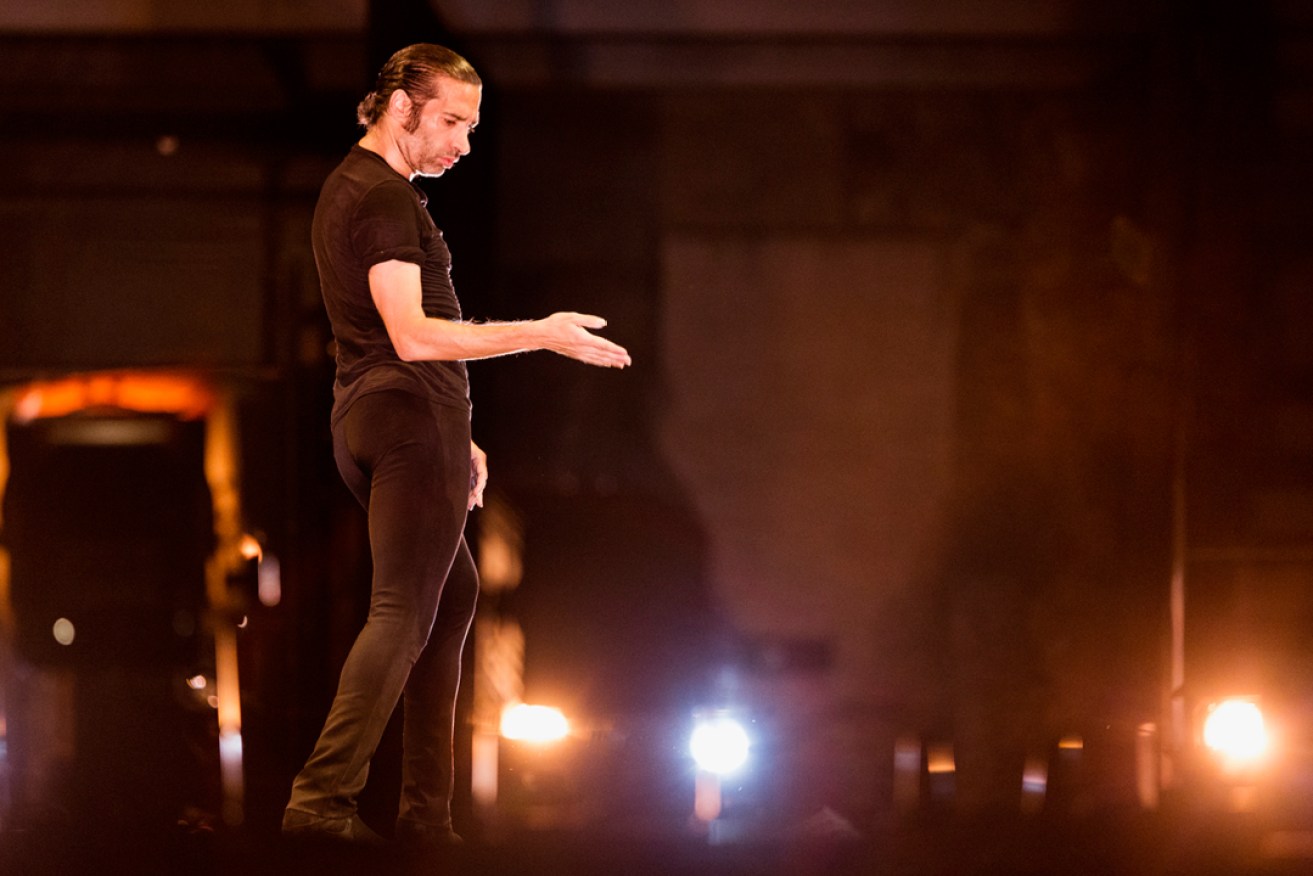Festival review: FLA.CO.MEN
The deconstructed title of flamenco star Israel Galván’s latest work makes it clear to anyone unfamiliar with his oeuvre: Expect the unexpected.


The son of José Galván and Eugenia de los Reyes, Israel Galván was born into flamenco royalty. He began his career with the great Mario Maya’s Compañia Andaluza de Danza in 1994 and has collaborated since with some of the biggest names in flamenco.
Although he is now in his mid-40s, his virtuosity remains undiminished, his technical prowess so great that only the sweat drenching his shirt belies the ease with which he manipulates his body to serve these new iterations of a centuries-old-art.
Galván has made a career of pushing at the boundaries of tradition — in 2005 he won Spain’s national prize for the creative renewal of flamenco — and in FLA.CO.MEN he pushes as hard as ever.
Galván and his band of six musicians subvert tradition at every opportunity. The performance opens with Galván in an apron, flicking the pages of some kind of flamenco recipe book, muttering instructions. He selects random ingredients — a deconstructivist chef — merging virtuosic zapateado footwork with contemporary dance and seasoning it with a generous sprinkling of humour.
Familiar snatches of guitar or cantos hinting at traditional palo song-forms layer with experimental sounds and strange vocalisations, creating a musical palimpsest that fuses with Galván’s extraordinary physicality.
Timpani, xylophone, bass drums, violin, saxophone and an ancient horn play alongside guitar and cajón; echoes of blues, rock and Katak emerge from traditional palos. The voice, used as an instrument, howls and squeaks before launching into the powerful and familiar strain of canto.
There are none of the segmented palo presentations of old-school flamenco; rather, FLA.CO.MEN flows seamlessly through collaged layers of the traditional and experimental: apron removed, Galván rips up pages and pins them to his hair and his body; he smashes a white ceramic flamenco boot — the ghost of flamenco past, perhaps — and dances it into dust.
A commentary on the commodification of flamenco stuns as his zapateado on a pile of money kicks coins off the stage. There is even a nod to John Cage with long silences that briefly remove the audience from the performance and invite the question: what is real in flamenco?
Born from centuries of oppression as an expression of resistance, flamenco belongs to the gitano gypsies of Andalusia. The de-politicised commodification of flamenco began with Franco claiming it as a nationalist treasure. Reiterations of perfected technique exported onto international stages allowed global audiences to enjoy the thrill and duende of flamenco but one could argue that the heart the gitano spirit has been sanitised along the way. Galván answers the question: Where can flamenco go from here? And to whom does it truly belong?
In turn self-mocking, comedic, angry and starkly powerful, FLA.CO.MEN reframes flamenco’s relevance while preserving its gitano soul. Any avant-gardism that threatens to overwhelm is tempered by humour and self-mockery.
In the bulería that typically ends most flamenco shows, Galván appears in a red-polka dotted flamenco dress. Here you go, he says, here’s your tradition: watch us flip flamenco on its head and make it meaningful again, but we won’t take ourselves too seriously.
FLA.CO.MEN is being presented at Her Majesty’s Theatre until March 11. Read more InDaily Adelaide Festival stories and reviews here.




